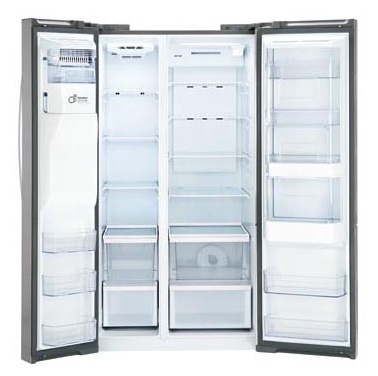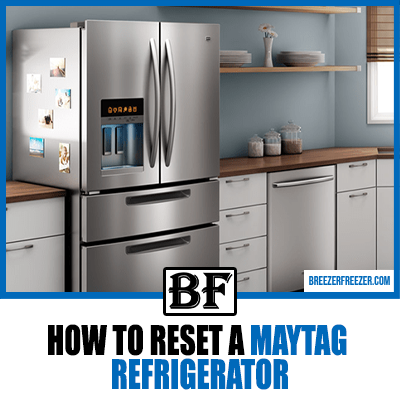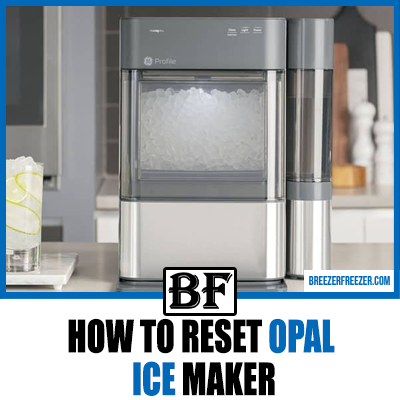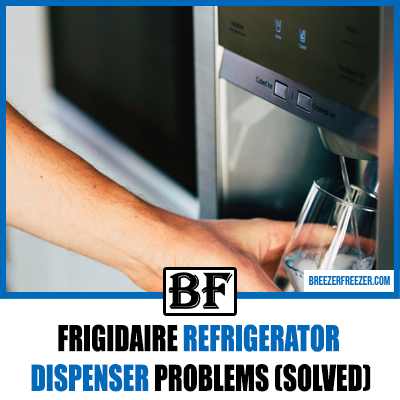How To Extend The Life Of Your Refrigerator
When we have just bought a new refrigerator, we expect it to last for a long time, and that’s why we tend to get reckless and ignore its maintenance. Like everything, it eventually wears out and its life cycle ends.
If you take care of it though, it not only lasts longer but you ensure optimal performance and great savings on electrical energy.

Therefore, we recommend you follow these few, but important tips:
- Store food in covered containers or put them in wrapping like aluminum foil or plastic paper.
- Don’t open it too often. When you open it the temperature changes and you make it work more than it should, so you only have to open it when you are going get something. Stop taking 100 sneak peeks per day.
- Wait for the food to cool down properly after cooking it and before putting it in the refrigerator. The cooling process will cost less.
- Avoid bad odors. If you’ve only used half of an onion you can pack the rest so that its smell will not contaminate the whole fridge.
- There are foods that do not require refrigeration, so do not put them in the refrigerator. For example, garlic is far from being preserved if you put it in the fridge, it germinates.
- Store in small portions. For example, if you are going to freeze something, it is better that it be packed in smaller portions instead of the full pot in which you’ve prepared the food. This makes it easier for you to manage food portions and the refrigerator cools faster.
- Remember that even frozen things expire, so look closely at the dates and don’t forget to throw things that went bad in the meantime.
- Once a food has been thawed it cannot be frozen again.
- Keep in mind that liquids increase their volume when they are frozen, so you should not fill the containers that contain them to the brim.
- Never freeze in glass containers because they could break. It is better to use plastic containers.
Regular maintenance
Want your refrigerator to last for years to come? Regular maintenance is the key. One important task is cleaning the coils. Dust and debris can build up on the coils, making the refrigerator work harder and use more energy.
So, make sure to clean the coils at least once a year. Another important task is defrosting the freezer. Frost build-up can reduce the efficiency of the freezer and make it harder to find what you need.
So, be sure to defrost the freezer at least once a year, or when the frost is more than 1/4 inch thick.
Lastly, check for leaks in the seal. A broken seal can cause the refrigerator to work harder and use more energy. So, check the seal around the door for any cracks or gaps, and replace it if necessary. With these simple maintenance tasks, your refrigerator will run like new for years to come.
Temperature settings
Want to keep your food fresh and your refrigerator running smoothly? Pay attention to the temperature settings.
Your refrigerator should be set between 34 to 38°F and your freezer should be set between 0 to 5°F. These are the recommended settings by the FDA.
Keeping the temperature at the right setting can help prevent wear and tear on the unit and ensure that your food stays fresh. If you notice that your food is spoiling faster than usual, check the temperature settings and adjust them accordingly.
By keeping the temperature at the recommended setting, you’ll not only keep your food fresh, but you’ll also save money on your energy bill by making sure that your refrigerator is running efficiently.
Proper loading
Want your refrigerator to last for years to come? Pay attention to how you load it. Overloading the refrigerator can put unnecessary stress on the unit and cause it to work harder.
Properly organizing and loading the refrigerator is key. Make sure that the food and drinks are not blocking the air vents, so that the air can circulate freely.
Also, try to keep the heavy items on the bottom shelves, where the refrigerator’s cooling coils are located.
This will help distribute the weight evenly and prevent any damage to the unit. By properly loading and organizing your refrigerator, you’ll not only make it easier to find what you need, but you’ll also prolong the life of your refrigerator by making sure it’s not working harder than it needs to.
Proper ventilation
Want your refrigerator to run efficiently? Proper ventilation is key. Proper ventilation is important for the compressor, condenser coils and the overall performance of the refrigerator. It’s crucial to make sure that the refrigerator has enough space around it for air to circulate.
If your refrigerator is crowded or pushed up against a wall, it can block the airflow to the condenser coils, which can cause the compressor to work harder and use more energy.
To ensure proper ventilation, make sure to leave at least two inches of space around the sides and back of the refrigerator. It’s also important to note that the condenser coils at the bottom or back of the refrigerator should be kept clean and free of dust, debris or lint.
This will help the refrigerator run more efficiently, cool more effectively and prolong its lifespan. By ensuring proper ventilation, you’ll be keeping your refrigerator running efficiently and prolonging its life.
Energy efficiency
Want to save money on your energy bill and prolong the life of your refrigerator? Go for an energy-efficient model.
Energy-efficient refrigerators use less power to keep your food cool, which not only saves you money on your energy bill, but also reduces wear and tear on the unit. When shopping for a new refrigerator, look for models with an Energy Star rating.
These models have been independently tested and certified to meet strict energy efficiency guidelines set by the U.S. Environmental Protection Agency (EPA).
You can also check the Energy Guide Label which provides an estimate of the annual energy consumption and cost of the unit.
By choosing an energy-efficient refrigerator, you’ll be saving money on your energy bill and extending the life of your refrigerator.
Another tip to make your refrigerator more energy efficient is to keep the door closed as much as possible. Every time you open the door, the warm air enters, and the refrigerator has to work harder to cool it back down.
So, try to minimize the number of times you open the door, and close it as quickly as possible.
Door seals
Want to prolong the life of your refrigerator? Check the door seals. Door seals are the barrier that keeps the cool air inside the refrigerator and prevent warm air from entering.
If the seals are cracked or damaged, warm air can seep in, causing the refrigerator to work harder and use more energy.
To check the door seals, close the refrigerator door on a dollar bill or a piece of paper. If you can pull the bill or paper out easily, the seal is not tight and needs to be replaced. Another way to check the seals is to run your hand around the perimeter of the door, feeling for any gaps or cracks.
If you find any, it’s time to replace the seal. Regularly checking and maintaining the door seals can help prolong the life of your refrigerator and save you money on your energy bill.
It’s also important to make sure that the door is aligned properly and that the hinges are in good condition. If the door is not aligned properly, the seal won’t make contact and will let warm air in.
So, check the alignment of the door and make any necessary adjustments. By keeping your door seals in good condition and ensuring proper alignment, you’ll be prolonging the life of your refrigerator and saving money on your energy bill.
Filter replacement
Want to ensure that your refrigerator is running efficiently? Make sure to change the air filter. Many refrigerators come with an air filter to keep the air inside the unit clean and fresh. But over time, the filter can become clogged with dust and debris, which can reduce the efficiency of the refrigerator.
To keep your refrigerator running efficiently, make sure to change the air filter according to the manufacturer’s instructions. Most filters need to be changed every 6 to 12 months, but this can vary depending on the model.
You can find the filter in the back or base of the refrigerator, or consult the user manual for the location.
It’s easy to change, and it will make a big difference in the performance of your refrigerator. By changing the air filter regularly, you’ll be ensuring that your refrigerator is running at its best and prolonging its life.
Another tip is to make sure that the air filter is the right size and type for your refrigerator. A filter that’s too small or too large can reduce the efficiency of the refrigerator and can even cause damage.
So, make sure to check the user manual or consult the manufacturer for the correct filter size and type.
By following the manufacturer’s instructions and using the correct filter size and type, you’ll be ensuring that your refrigerator is running efficiently and prolonging its life.
Location
Want to prolong the life of your refrigerator? Pay attention to its location. Placing your refrigerator in direct sunlight or near a heat source can cause the unit to work harder and shorten its life.
The ideal location for a refrigerator is in a cool and well-ventilated area, away from heat sources such as stoves, ovens or windows that get direct sunlight.
This will help prevent the compressor from working harder to keep the interior cool. Also, make sure that the refrigerator has enough space around it for air to circulate.
This will help prevent the compressor from overheating and prolong its life. By placing your refrigerator in the right location, you’ll be ensuring that it’s running efficiently and prolonging its life.
Another tip is to keep the refrigerator away from appliances that generate heat, like the oven or dishwasher. These appliances can cause the temperature inside the refrigerator to rise, which can cause the compressor to work harder.
Also, make sure that the refrigerator is level, if it’s not, the door seal may not make contact with the door and warm air can seep in.
So, check the level of the refrigerator and make any necessary adjustments. By keeping your refrigerator in the right location and making sure that it’s level, you’ll be prolonging its life and saving money on your energy bill.
Power outages
Power outages happen, and when they do, they can be a real pain – especially when it comes to keeping your food fresh. But with a little bit of preparation, you can minimize the risk of food spoilage. When the power goes out, the first thing you should do is to keep the door closed as much as possible.
This will help prevent the warm air from entering the refrigerator, and keep the interior temperature low.
Also, try to keep the freezer door closed as much as possible, as a full freezer will stay cold for longer than an empty one. If possible, keep a thermometer in the refrigerator, so you can check the temperature when the power comes back on.
By keeping the door closed and monitoring the temperature during a power outage, you’ll be minimizing the risk of food spoilage and prolonging the life of your refrigerator.
Another tip is to have a plan in place for power outages. Keep a cooler with ice packs on hand, so you can transfer perishable items to it in case of a power outage.
Also, make sure to have a flashlight and a battery-operated radio on hand, so you can stay informed about the status of the power outage.
By having a plan in place and being prepared for power outages, you’ll be minimizing the risk of food spoilage and extend the life of your refrigerator.




